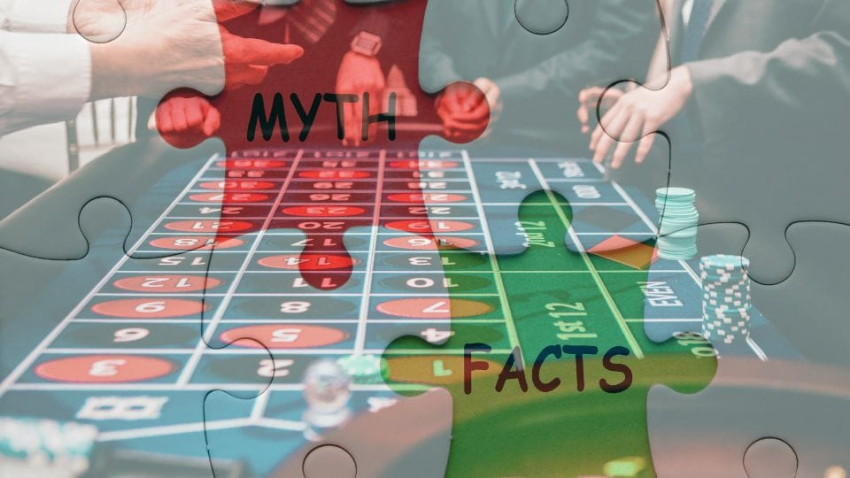Gambling myths have long clouded the understanding of both novice and seasoned players, leading many to believe in false narratives surrounding the games they enjoy. These common gambling myths, such as the illusion of guaranteed wins and the belief in lucky streaks, can skew an individual’s perspective, often resulting in costly misconceptions. As we dive deeper into debunking gambling myths in this article, it’s essential to arm yourself with factual gambling insights that can guide your choices towards responsible betting practices. By examining these prevalent gambling misconceptions, we not only shed light on their inaccuracies but also encourage a more informed approach to gaming. Understanding the truth behind these myths is crucial for anyone looking to genuinely enjoy gambling while minimizing the risks associated with it.
When discussing the world of wagering and betting, it’s important to differentiate between the reality of games of chance and the widespread misunderstandings that often accompany them. With phrases like ‘gambling fallacies’ and ‘misguided betting beliefs’ frequently thrown around, many bettors find themselves misled by these entrenched notions. This narrative aims to unravel the confusion that surrounds gambling habits, offering clarity on the truths behind popular misconceptions. From the allure of quick riches to debunking strategies believed to guarantee wins, a careful examination of these gambling myths is not only enlightening but also essential for fostering a healthy gaming environment. Join us as we closely analyze these themes to elevate your gambling experience to a more informed level.
Understanding Gambling Myths and Misconceptions
Gambling myths have a pervasive effect on how individuals perceive their potential for success within various forms of betting. Many people erroneously believe that luck alone guarantees winning outcomes; this is one of the most common gambling misconceptions. The reality is that while luck does play a role, skill, knowledge of the game, and understanding of odds are crucial for achieving long-term success. Furthermore, these myths often stem from anecdotal evidence, where stories of big wins overshadow the more frequent tales of loss, leading players to foster unrealistic expectations about their chances when placing bets.
Moreover, another prevalent misconception is the idea of ‘hot’ and ‘cold’ machines, especially in slot gaming. Many gamblers swear by the feeling that certain machines are due for a payout, resulting in them congregating around these slots in hopes of striking it rich. However, this belief completely overlooks how modern slot machines function. Every spin is determined by a Random Number Generator (RNG), meaning outcomes are entirely random and unaffected by previous spins. Such misconceptions can lead to misguided strategies that often culminate in disappointment and financial loss for players.
The Impact of Cognitive Biases on Gambling Behavior
Cognitive biases play a critical role in shaping gamblers’ perceptions and experiences. A common cognitive distortion seen in many gamblers is selective memory, which causes players to focus more on victories than on losses. This phenomenon creates an illusory belief that winning is more common than it truly is, prompting players to continue gambling even when the odds are against them. By only recalling the wins, players fall into a flawed mindset that encourages further betting, often resulting in chasing losses and exacerbating their gambling problems. Understanding this bias is crucial for those looking to maintain a healthy gambling habit.
Additionally, the illusion of control represents another barrier to responsible gambling practices. Many gamblers mistakenly believe that they can influence the outcome of games of chance through specific techniques or rituals. This notion is prevalent in both casino gambling and sports betting, where players think that their strategies can alter the fate of random events. Such beliefs are rooted in gambling myths and can detract from the enjoyment of games that should predominantly be seen as sources of entertainment rather than paths to financial gain.
Frequently Asked Questions
What are some common gambling myths that players should be aware of?
Common gambling myths include the belief in the Gambler’s Fallacy, which suggests that previous outcomes affect future results, and the notion that ‘hot’ and ‘cold’ machines exist in casinos. Understanding gambling facts reveals that each game round is independent, and outcomes are determined by random processes. By debunking these gambling misconceptions, players can make more informed choices and gamble responsibly.
Can progressive betting systems guarantee wins in gambling?
No, progressive betting systems, like the Martingale system, do not guarantee winnings. Many players mistakenly believe that increasing bets after losses will ensure profits. However, such strategies can lead to substantial losses during losing streaks. It’s important to recognize these common gambling myths and focus on responsible gambling practices to manage risks effectively.
| Myth Number | Gambling Myth | Description |
|---|---|---|
| 1 | The Gambler’s Fallacy | Belief that a loss streak in games increases the chances of a win in the next round. |
| 2 | Progressive Betting Systems Guarantee Wins | Belief that increasing bet sizes after losses guarantees eventual profit. |
| 3 | ‘Hot’ and ‘Cold’ Machines | Belief that slot machines go through cycles of being ‘hot’ or ‘cold’. |
| 4 | Expert Gamblers Always Win | Belief that experienced gamblers always succeed. |
Summary
Gambling myths are prevalent and perpetuate misinformation about betting practices. These myths can create unrealistic expectations about the nature of gambling and its potential rewards. Understanding the truth behind these misconceptions is crucial for fostering responsible gambling behavior and making informed choices. By debunking common gambling myths, players can engage more responsibly with the gaming world, avoiding pitfalls that can lead to financial troubles and disappointment.
